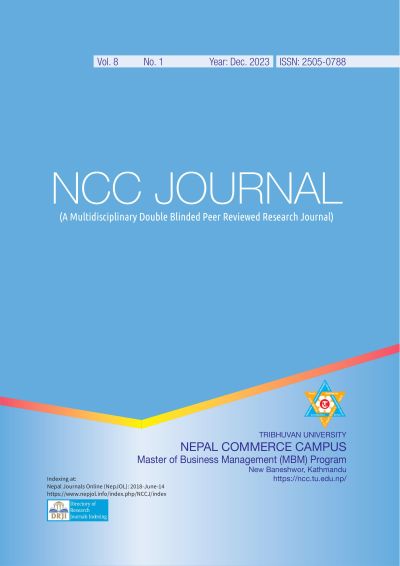Macroeconomic Determinants of the Stock Market in Nepal: An Empirical Analysis
DOI:
https://doi.org/10.3126/nccj.v8i1.63087Keywords:
Co-integration, econometric, Granger causality, vectors auto-regressionAbstract
The stock market plays a critical role in the field of the economic sector of a country, facilitating capital flow to businesses and reflecting the national economic health. The purpose of this study was to conduct an empirical analysis of co-integration and causality tests between the stock market and macroeconomic factors. The study used indicators such as the consumer price index (CPI), exchange rates (EXR), money supply (MS), and remittances (REMIT) to determine their potential impact on stock market dynamics. To analyze the data collected from June 2005 to November 2023, advanced econometric models like co-integration were employed to explore long-term equilibrium. Vector auto-regression (VAR) was used to analyze the impact and Grangers’ causality tests were used to identify cause and effect. The results of the VAR model emphasized the market index's (INDEX) dependency on its own lagged values, with insignificant influence from consumer prices (CPI) and money supply (MS), but significant effects from exchange rates (EXR), and remittances (REMIT). Granger causality tests revealed no causality between CPI, MS, and REMIT in the INDEX. However, this test exhibited a significant causality from EXR to INDEX. This highlights the predictive power of exchange rates on the stock market.
Downloads
Downloads
Published
How to Cite
Issue
Section
License
© Nepal Commerce Campus, Tribhuvan University
CC BY-NC: This license enables reusers to distribute, remix, adapt, and build upon the material in any medium or format for noncommercial purposes only, and only so long as attribution is given to the creator.




